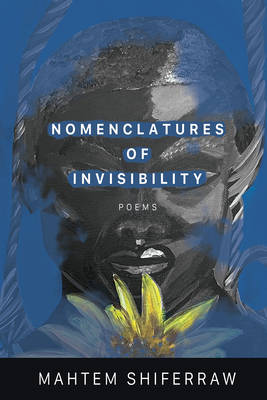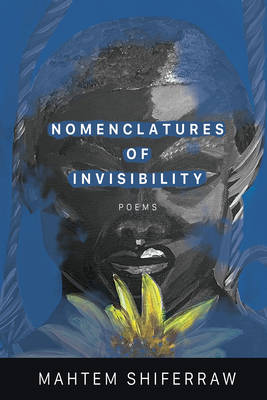
- Afhalen na 1 uur in een winkel met voorraad
- Gratis thuislevering in België vanaf € 30
- Ruim aanbod met 7 miljoen producten
- Afhalen na 1 uur in een winkel met voorraad
- Gratis thuislevering in België vanaf € 30
- Ruim aanbod met 7 miljoen producten
Zoeken
€ 23,95
+ 47 punten
Omschrijving
Through a personal, historical, and political lens, Mahtem Shiferraw attends to the collective experiences inherited through deeply-rooted ancestry, tracing patterns of movement and migration, sorrow and invisibility, and the resulting complicated notions of home.
In Nomenclatures of Invisibility, Shiferraw calls us to carve out space for the multitudes of selves we carry when we migrate across boundaries of body, language, and land. With momentum, giving name to everything in her path from the longing that comes with migration to her beloved eucalyptus tree, she blurs physical and temporal borders, paying homage to ancestors past, present, and future. Shiferraw writes unapologetically against erasure, against invisibility, instead creating a space that holds grief lovingly, that can tend to the wounds held and held in the endlessly-traveling body. Brilliant with abundance and texture, Shiferraw's poems dismantle the empire's sterile use of language, both historical and present. In Nomenclatures of Invisibility, Mahtem Shiferraw builds a home within her poems, attentively naming those who exist within them out of invisibility and into the radiant light: "We walk / in unison too: our backs bending at once, / our arms breaking, our abdomens / kicked into silence, thighs bleeding. Through / this I ask; am I still lit? And they, again /...what else would you be-"
In Nomenclatures of Invisibility, Shiferraw calls us to carve out space for the multitudes of selves we carry when we migrate across boundaries of body, language, and land. With momentum, giving name to everything in her path from the longing that comes with migration to her beloved eucalyptus tree, she blurs physical and temporal borders, paying homage to ancestors past, present, and future. Shiferraw writes unapologetically against erasure, against invisibility, instead creating a space that holds grief lovingly, that can tend to the wounds held and held in the endlessly-traveling body. Brilliant with abundance and texture, Shiferraw's poems dismantle the empire's sterile use of language, both historical and present. In Nomenclatures of Invisibility, Mahtem Shiferraw builds a home within her poems, attentively naming those who exist within them out of invisibility and into the radiant light: "We walk / in unison too: our backs bending at once, / our arms breaking, our abdomens / kicked into silence, thighs bleeding. Through / this I ask; am I still lit? And they, again /...what else would you be-"
Specificaties
Betrokkenen
- Auteur(s):
- Uitgeverij:
Inhoud
- Aantal bladzijden:
- 88
- Taal:
- Engels
- Reeks:
Eigenschappen
- Productcode (EAN):
- 9781950774906
- Verschijningsdatum:
- 25/04/2023
- Uitvoering:
- Paperback
- Formaat:
- Trade paperback (VS)
- Afmetingen:
- 147 mm x 224 mm
- Gewicht:
- 158 g

Alleen bij Standaard Boekhandel
+ 47 punten op je klantenkaart van Standaard Boekhandel
Beoordelingen
We publiceren alleen reviews die voldoen aan de voorwaarden voor reviews. Bekijk onze voorwaarden voor reviews.











